Wildfire Season Impacts – Be Prepared
// June 24, 2024
2023 was the most destructive wildfire season in British Columbia’s recorded history. Preparing for the 2024 season is crucial to staying safe on the jobsite and at home. Wildfire season has already arrived in many parts of the province much earlier than expected.
Whenever possible, reduce the amount of time spent outdoors exposed to wildfire smoke. Wearing a fit-tested, certified N95 half mask respirator significantly reduces the health risks related to wildfire smoke.
Physical work, especially outdoors, can increase your air intake by as much as 30%. This poses a serious risk in areas with wildfire smoke. Make sure to discuss this with workers and document it in pre-job planning/hazard assessments. See our Toolbox Talk on emergencies and evacuations for more information.
If you have a pre-existing respiratory or cardiovascular condition, you need to take extra care when you’re exposed to wildfire smoke. Discuss this with your supervisor and site safety/OFA. Being elevated in a crane cab can potentially increase your risk in wildfire smoke conditions. Update your supervisor, site safety, and/or occupational first aid attendant immediately if you are experiencing any symptoms of concern.
Smoke Exposure Symptoms
| Mild Symptoms | Elevated Symptoms |
| Coughing | Severe cough |
| Runny nose | Shortness of breath |
| Headache | Dizziness |
| Phlegm production | Chest pains |
| Eye, nose and throat irritation | Heart palpitations |
| Wheezing |
Heat Stress and heat stroke are commonly associated with symptoms of wildfire smoke exposure. Check out BC Crane Safety’s Preventing Heat Stress resource page for more information.
Poor visibility due to smoke is another factor to plan for. Ensure you have an effective way to communicate as an alternative to hand signals between operators and/or riggers.
If you live or work in an area subject to wildfires and there is a risk of being evacuated, WorkSafeBC has created a Wildfire Evacuation Planning guide to assist you in writing your Emergency Response Plan. Watch the video “Every minute counts” to understand the importance of preparing for emergencies.
WorkSafeBC has a Health and Safety Resources for Wildfire Season page, along with a Frequently Asked Questions publication on Wildfire Smoke that is beneficial for employers, supervisors, and workers.
Resources
Check the BC Wildfire Service 2024 Seasonal Outlook. It includes spring and summer long-range forecasts. Another good resource is BC FireSmart which has practical information about preparing for and dealing with fire season.
While the WorkSafeBC Occupational Health and Safety Regulation (OHSR) does not specifically address wildfire smoke, there are sections that may apply in some circumstances:
- Part 4: Emergency preparedness and response
- Part 4: Indoor air quality
- Part 5, Section 5.2: General information requirement
- Part 5: Controlling exposure
- Part 8: Personal protective equipment




